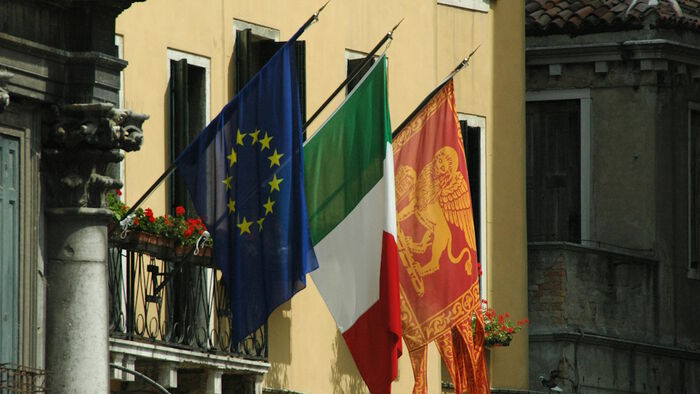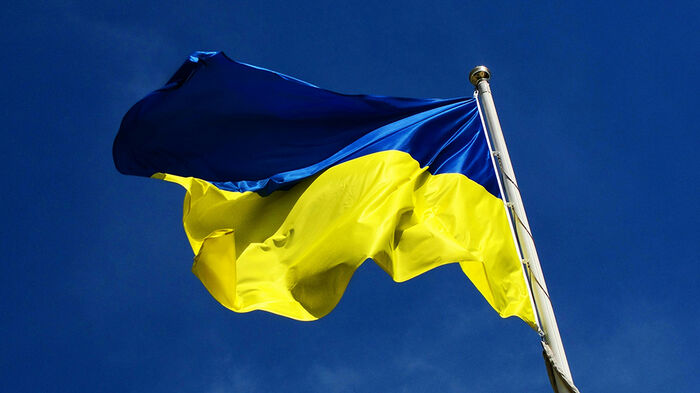Kacper Rekawek is currently co-writing a report on the incident and the contents of the manifesto. Therefore this post focuses on the personal-political context in which the attacker operated, and the reactions to the incident from the Slovak establishment instead.
On 12 October 2022, Juraj Krajčík, a 19-year-old individual shot dead two customers, and wounded a waitress, of Tepláreň (widely known as a gay bar in the centre of Bratislava, Slovakia). He justified his actions in a 65 page manifesto, originally published on Twitter. He framed his actions as part of a virulent antisemitism, and was allegedly also looking for Jewish targets to attack in Bratislava. However, failing to find these, he decided to attack an LGBTQI+ target instead. Around twelve hours after the incident he committed suicide, not far from his home in Bratislava.
Context
The attacker’s father, Juraj Krajčík Senior, stood for a far-right political party (Vlast’, Homeland) in the 2020 parliamentary election and received a disappointing 239 votes. His party failed to win any seats since it won less than 3% of the vote nationally (the threshold is 5%). This feeble result obscures the relative strength of the far right, “patriotic”, political forces in Slovakia, which are split and involved in intra-milieu competition. The two main far right forces, Vlast’ and L’SNSN (Popular Party Our Slovakia), won 11% in the 2020 parliamentary elections. However, other parties, including the centre-right O’LANO (Ordinary People and Independent Personalities), right wing SNS (Slovak National Party), populist SME Rodina (We Are Family) and centre-left SMER-SD (Direction-Social Democracy), which together won 54% of the vote, actively courted “patriotic” voters, while siphoning support from the likes of Vlast’ and L’SNS. In the 2019 presidential election, leaders of the two far-right parties netted 24% of the vote, but it was a supposedly “centre-left” candidate running a campaign based on “traditionalist and Christian values” who progressed to the second round, and won 42% of the vote. It is by no means just the far right in Slovakia that promotes a “patriotic” agenda.
Vlast’s messaging, to which the shooter’s father subscribed, is not just populist or radical right, but veers towards extremism. The party proclaims that “they [the mainstream, the establishment] stole our homeland”, a standard trope of anti-systemic far-right opposition. After the Bratislava attack, Vlast’s leader, Stefan Harabin, former chief justice of Slovakia’s Supreme Court, went further as he accused his liberal opponents of working hand in hand with George Soros, “long-term…spreaders of hateful extremism” against “patriotic” Slovaks. In his view, they are “forcing an LGBT agenda on normal people” and their “liberalism, with its satanist sexual practices, equals the liquidation of human civilization”. Liberals are mocked as individuals who “dress like monkeys and eat things we feed pigs with”. According to Harabin, they should “kill themselves so that their stupid kids would not shame us”.
The extent to which such rhetoric influenced the Bratislava attacker remains unknown. However, after the attack he wrote on his, now defunct, Twitter account that he “killed two faggots”, and that if “everyone who had my views were to do the same then the problem would be over in a day”. Of course his father’s party officially deplores violence and vehemently rejects the moniker of belonging to the ”far right” or being “extremist”. At the same time, the party claims there is a liberal agenda to reduce the numbers of Slovaks to turn the country into a mere “pawn” of institutions like NATO and the EU – clear echoes of the ‘Great Replacement’ theory.
Its far-right competitors do not seem to mind: L’SNS leader Kotleba welcomed the attacker’s father on his radio programme in the aftermath of the shooting. Kotleba claimed that the shooting was actually a conspiracy by the state security services, aiming to discredit the country’s “traditionalists” and “conservatives”. During their interview, the duo also attempted to express condolences, while simultaneously questioning whether LGBTQI+ Slovaks face discrimination at all. There was also an exchange in which they on one hand professed their dedication to non-discrimination of the LGBTQI+ community, but on the other agreed that it was “hard to say what to call them nowadays”, or did not know “what this was called”.
The Slovak political class, while not directly echoing this blasé approach to the problem, has failed the test of how to respectfully respond to the tragedy in Bratislava. Moreover, it has so far also failed to convincingly demonstrate concern, or offered actionable proposals to better the situation.
Reaction
A week before the attack, the Slovak parliament voted on the proposed amendment to the law on Slovakia’s national symbols, which would ban state institutions from displaying “symbols of movements, organisations, communities and ideologies propagating any kind of sexual orientation”. This amendment, put forward by a government MP and a far-right “independent” deputy, specifically targeted the rainbow flag. It failed to progress to the next stage of debate, but the devil is in the detail. Out of 129 parliamentarians present (150 sit in the Slovak parliament), 74 actually voted, with “only” 44 voting for the amendments, and a mere 28 against. 54 felt no obligation to vote at all.
Two weeks later, a week after the attack, another vote was held in parliament. MPs were asked to vote on “partnership co-habitation”, effectively registered partnerships for all (including heterosexual) citizens. Since Slovakia is one of the six remaining EU countries in which registered partnerships are not available to same-sex couples, this was a highly symbolic act, and an immediate attempt to address the plight of the LGBTQI+ community in the country. The notion, put forward by the newly oppositional liberals (who quit the governing coalition in the summer this year), was also defeated: 50 MPs were in favour, with 133 voting. An MP of the governing coalition commented that he voted against it, as it would “set off an avalanche which as its endpoint has the adoption of children by same-sex couples, and the criminalisation of individuals who oppose such measures”.
Marek Vagovič, the country’s most prominent journalist opined that in the future “Christians too” (or Jews or Black people) could become the victims of the next attack. One of the Catholic Church’s archbishops commented in a leaked internal Church document that the victims of the attack, steeped in “immoral behaviour” and potentially drugs, should not have been referred to as “innocent”. The former Prime Minister, and current Minister of Finance, felt compelled to post on his Facebook profile that he was heterosexual, and “is a man and feels like a man”. The leader of the country’s Christian-Democratic party commented that registered partnerships would not have his support, since “marriage between a man and a woman is something natural, enshrined in the constitution [the Slovak constitution defines marriage as a union between a man and a woman], and normal”. He also stated that he would not “hold the rainbow flag as it is an obvious symbol”.
At the same time, Ide nám o život (It Is About Life), an initiative set up to ensure “equality and safety” for LGBTQI+ persons in Slovakia, pointed out more dignified and encouraging responses, especially from the country’s president, the prime minister and individual ministers and MPs. However, they also noted their ongoing wait for the promised proposals to “better the situation of LGBTQ inhabitants” which are to be put forward by the Ministry of Justice, and for a meeting with the prime minister. It was noted that there has been no progress on several points: the ethics code which would bind and penalise MPs for hateful language, or the lack of health services for transgender people. They also singled out the aforementioned Minister of Finance and the Speaker of Parliament, who were vocal about the alleged “inadmissibility of registered partnerships”.
Conclusion
The attack in Bratislava and its aftermath, exposed what Roman Samotný, the owner of the bar, termed “a deadly cocktail”. In his view, the harassment his business and his clients were facing before the deadly shooting, was the result of the “fish rotting from the head down”. He reminded people that parliament was full of individuals “who call for hate”, and want to “eradicate us [LGBTQI+ people]”. He was appalled by the inability of some to unequivocally stand with the victims since this supposedly amounted to taking a stand on a “cultural-ethical topic”. These topics, as is widely known in Slovakia, have been agreed by the current centre-right government to be left untouched, so that divisions over LGBTQI+ rights in Slovakia would not destabilize the coalition. Samotný demanded action from the prime minister whom he met later, and demanded concrete action which would better the situation of “people who are a part of Slovak society”.
It remains to be seen if that will happen. Perhaps one can take solace from the fact that the far-right fared poorly in the local elections, which took place 17 days after the attack. But, in the long run, their share of the vote will matter less for the LGBTQI+ Slovaks than the attitudes and policies of non-far-right political forces. In this regard, the far from exemplary responses to the 12 October 2022 attack leave a lot to be desired.
.jpg)




